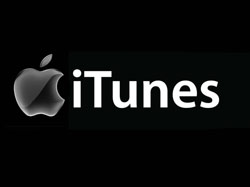Does anyone take the time to read the License Agreement to any of the software applications that are installed on their machine? Most times users just want to get the software up and running as soon as possible and consequently just press “Next” over and over again, with potential breaks for setting up additional installation options. Those of you that had the curiosity to read the iTunes License Agreement will know that Apple does not want you using their software in any terrorist related activities – you know, things like manufacturing nuclear missiles or biological weapons.
Here is the excerpt from the Apple License Agreement: “You may not use or otherwise export or reexport the Apple Software except as authorized by United States law and the laws of the jurisdiction in which the Apple software was obtained. In particular, but without limitation, the Apple Software may not be exported or re-exported into any U.S. embargoed countries or to anyone on the U.S. Treasury Department’s list of Specially Designated Nations or the U.S. Department of Commerce Denied Person’s List or Entity List. By using the Apple Software, you represent and warrant that you are not located in any such country or on any such list. You also agree that you will not use these products for any purposes prohibited by United States law, including, without limitation, the development, design, manufacture or production of missiles, or nuclear, chemical or biological weapons.”
If you would like to take a look at the License Agreement for yourself, you can do so here (PDF warning).
In related iTunes news, the US state of Virginia will use iTunes for positive purposes – to be more precise, it will use iTunes U (area of the iTunes Store focused on learning) to share digital content that supports the Virginia Standards of Learning. The initiative was launched by Virginia Governor Timothy Kaine and it involves developing new mobile education apps that would help K-12 students learn math (not how to make missiles). Experts have high hopes for this initiative, which will provide digital content that “maintains the highest standards of quality, accuracy, and relevance,” but as Virginia's Secretary of Technology, Aneesh Chopra, pointed out, follow-ups are necessary in order to properly evaluate its effectiveness.
Here is the excerpt from the Apple License Agreement: “You may not use or otherwise export or reexport the Apple Software except as authorized by United States law and the laws of the jurisdiction in which the Apple software was obtained. In particular, but without limitation, the Apple Software may not be exported or re-exported into any U.S. embargoed countries or to anyone on the U.S. Treasury Department’s list of Specially Designated Nations or the U.S. Department of Commerce Denied Person’s List or Entity List. By using the Apple Software, you represent and warrant that you are not located in any such country or on any such list. You also agree that you will not use these products for any purposes prohibited by United States law, including, without limitation, the development, design, manufacture or production of missiles, or nuclear, chemical or biological weapons.”
If you would like to take a look at the License Agreement for yourself, you can do so here (PDF warning).
In related iTunes news, the US state of Virginia will use iTunes for positive purposes – to be more precise, it will use iTunes U (area of the iTunes Store focused on learning) to share digital content that supports the Virginia Standards of Learning. The initiative was launched by Virginia Governor Timothy Kaine and it involves developing new mobile education apps that would help K-12 students learn math (not how to make missiles). Experts have high hopes for this initiative, which will provide digital content that “maintains the highest standards of quality, accuracy, and relevance,” but as Virginia's Secretary of Technology, Aneesh Chopra, pointed out, follow-ups are necessary in order to properly evaluate its effectiveness.

























